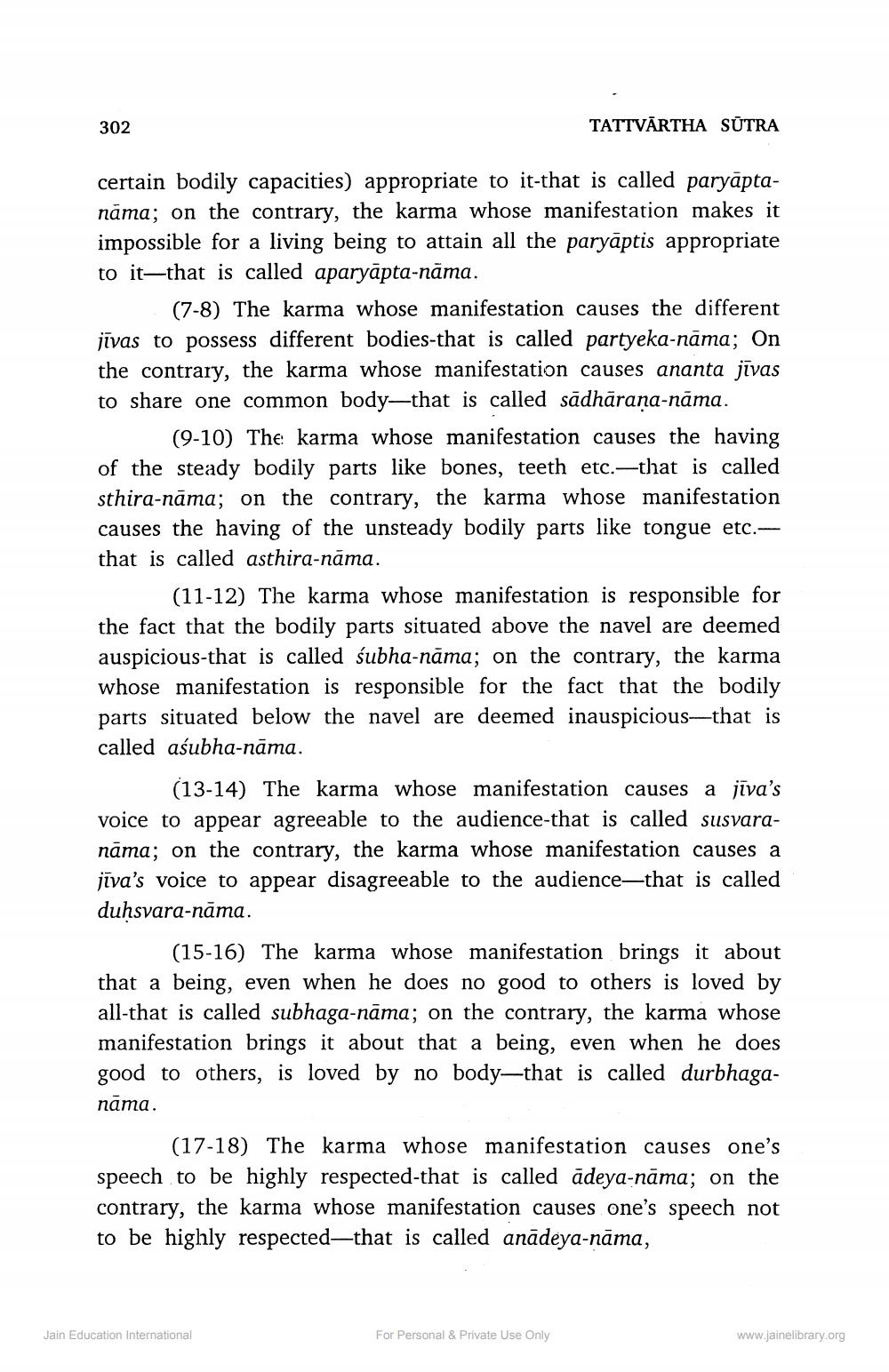________________
302
TATTVĀRTHA SŪTRA
certain bodily capacities) appropriate to it-that is called paryāptanāma; on the contrary, the karma whose manifestation makes it impossible for a living being to attain all the paryāptis appropriate to it—that is called aparyāpta-nāma.
(7-8) The karma whose manifestation causes the different jīvas to possess different bodies-that is called partyeka-nāma; On the contrary, the karma whose manifestation causes ananta jīvas to share one common body—that is called sādhārana-nāma.
(9-10) The karma whose manifestation causes the having of the steady bodily parts like bones, teeth etc.—that is called sthira-nāma; on the contrary, the karma whose manifestation causes the having of the unsteady bodily parts like tongue etc.that is called asthira-nama.
(11-12) The karma whose manifestation is responsible for the fact that the bodily parts situated above the navel are deemed auspicious-that is called śubha-nāma; on the contrary, the karma whose manifestation is responsible for the fact that the bodily parts situated below the navel are deemed inauspicious—that is called aśubha-nāma.
(13-14) The karma whose manifestation causes a jīva's voice to appear agreeable to the audience-that is called susvaranāma; on the contrary, the karma whose manifestation causes a jīva's voice to appear disagreeable to the audience—that is called duhsvara-năma.
(15-16) The karma whose manifestation brings it about that a being, even when he does no good to others is loved by all-that is called subhaga-nāma; on the contrary, the karma whose manifestation brings it about that a being, even when he does good to others, is loved by no body—that is called durbhaganāma.
(17-18) The karma whose manifestation causes one's speech to be highly respected-that is called ādeya-nāma; on the contrary, the karma whose manifestation causes one's speech not to be highly respected—that is called anādeya-nāma,
Jain Education International
For Personal & Private Use Only
www.jainelibrary.org




